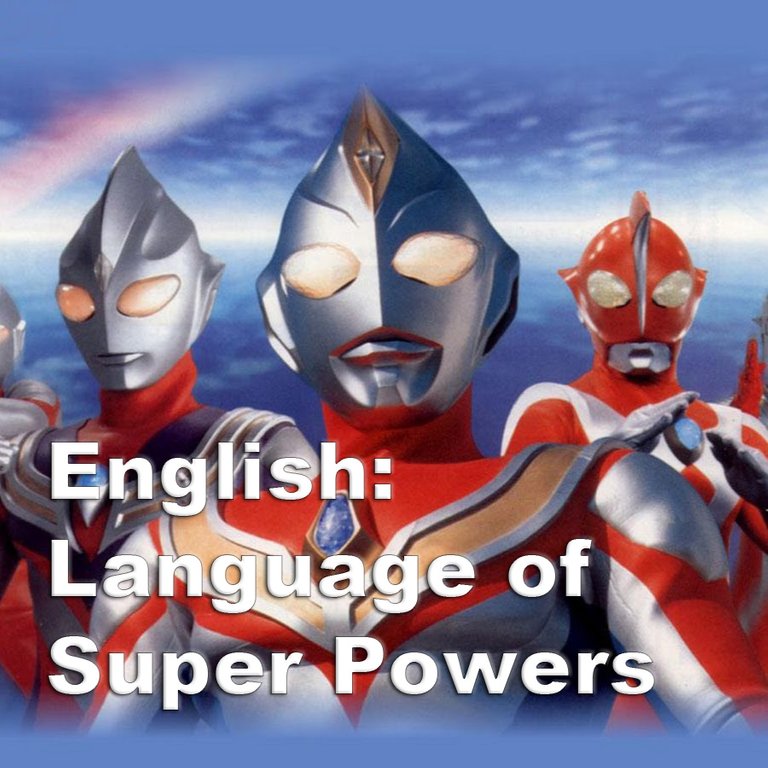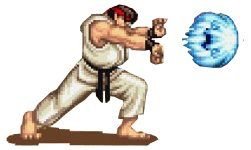English, the language of Super Powers ~ TV in Japan

My oldest son is really into Ultraman and Kamen Rider. This is not unusual; most Japanese boys are. Sometimes I sit and watch with him. Ultraman has been following the same template for the past 50 years: alien monster comes, causes trouble, and Ultraman comes to deal with it by the end of the episode. Sometimes there is some morality lesson about how things are not as they seem, and the monster is often not all bad. Kamen Rider varies a little more from series to series but is ultimately a similar thing: bad guy comes and wins for a while, but then Kamen Rider comes and beats him by the end of the show.
For me the shows range from silly to boring, but I enjoy sitting with my kids, so I put up with it. And it is useful in some ways: I get to practice my Japanese listening and I pick up more sci-fi vocab. This is actually more useful than it would seem. Most adult men in Japan liked these shows when they were kids, so I've been able to use the shows to make conversation with them.

Anyway, also odd things jump out at me. Like how English is used in these shows. It's used as kind of an announcement of special powers or incantation to invoke secret powers.
In Ultraman, when the hero changes to Ultraman there is usually an English voice over that announced "Ultraman Decker" or replace "Decker" with the current Ultraman name. It changes each series. Whenever he activates a special power, the English voice will announce the power name.
Summoning Ultraman
That may sound normal at first, but keep in mind the audience is Japanese. Though they learn some English in school, mostly they don't know any, so the English in these shows is done more as window dressing and to sound cool. I imagine it is very similar to when Street Fighter II was released in America but didn't translate any of the things some of the characters said; us kids had no idea what the heck shōryūken or hadōken meant, but they sure did sound cool and all of us tried to say the words when we played with each other.

Kamen Rider is a little less consistent when using English, but often it will be thrown in in the same ways.
Transforming into Kamen Rider
Finishing move

Anyway, nothing too deep for this post, just wanted to introduce this little trivia that English might be used in Japanese shows in the same way as foreign languages might be used in an English show—to sound cool. I just finished watching Ultraman with my boy so it's fresh in my mind.
Enjoy!
You are right I also feel that some words in movies or simply in animated series or any genre, when doing the translation they leave some words just to sound cool to the ear of the viewer, in this case with this series, I never saw it but I saw a couple of images before, but I didn't know much about it.